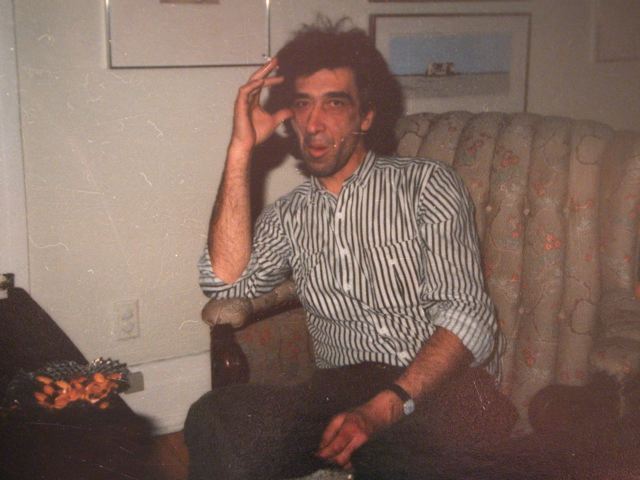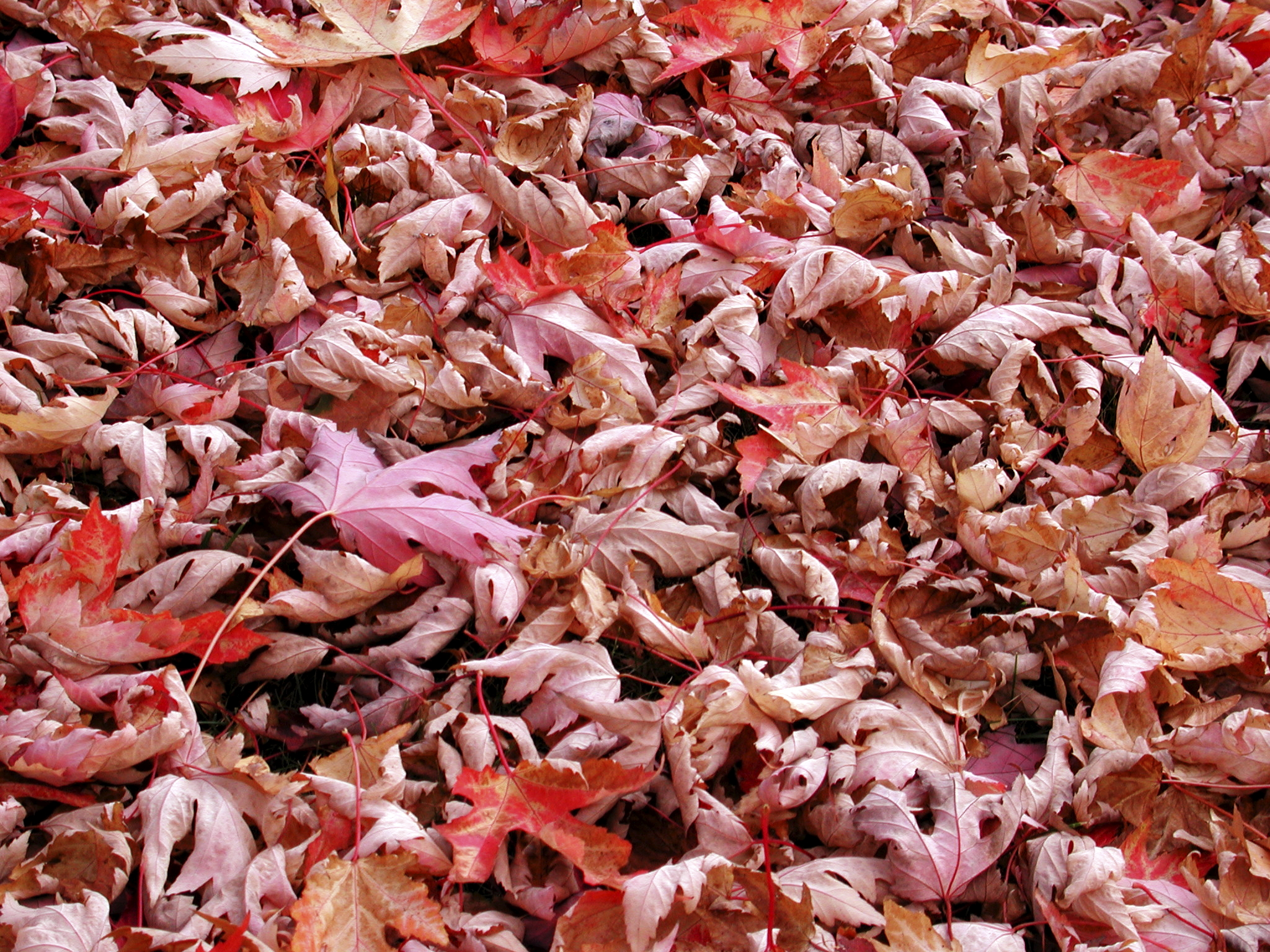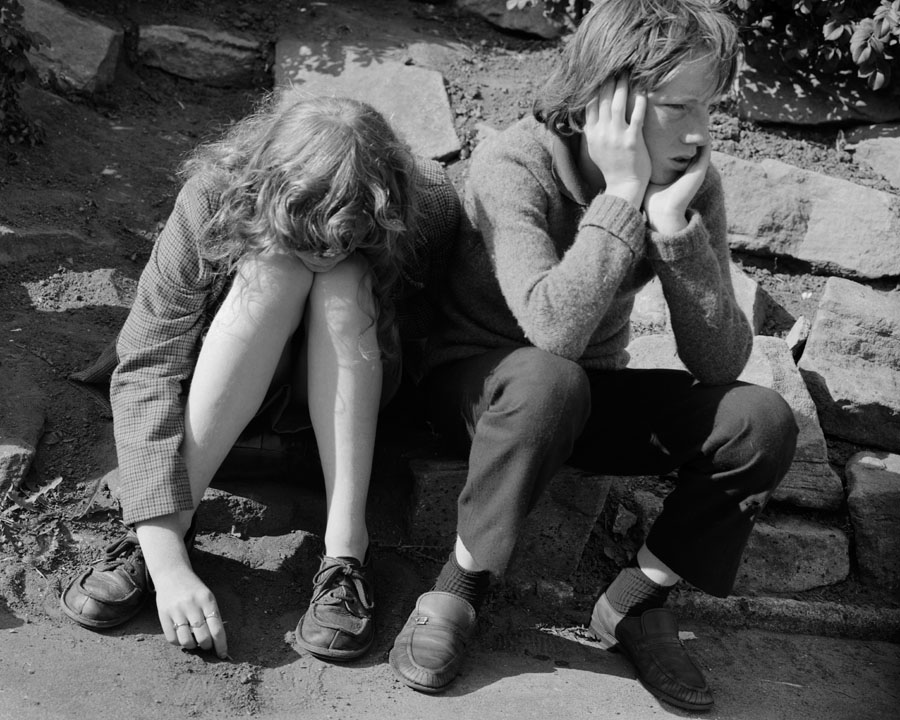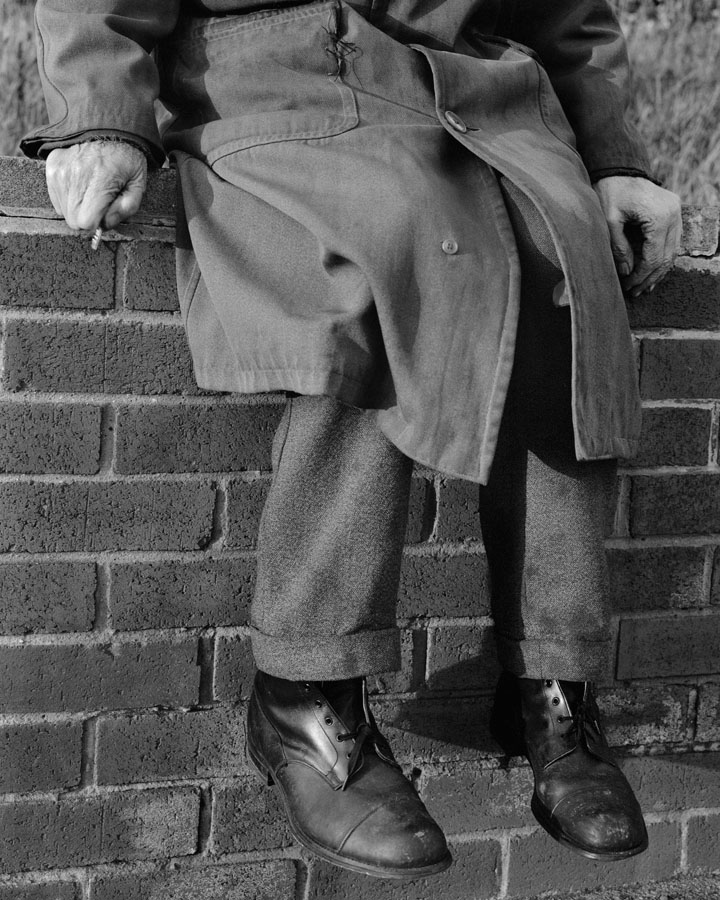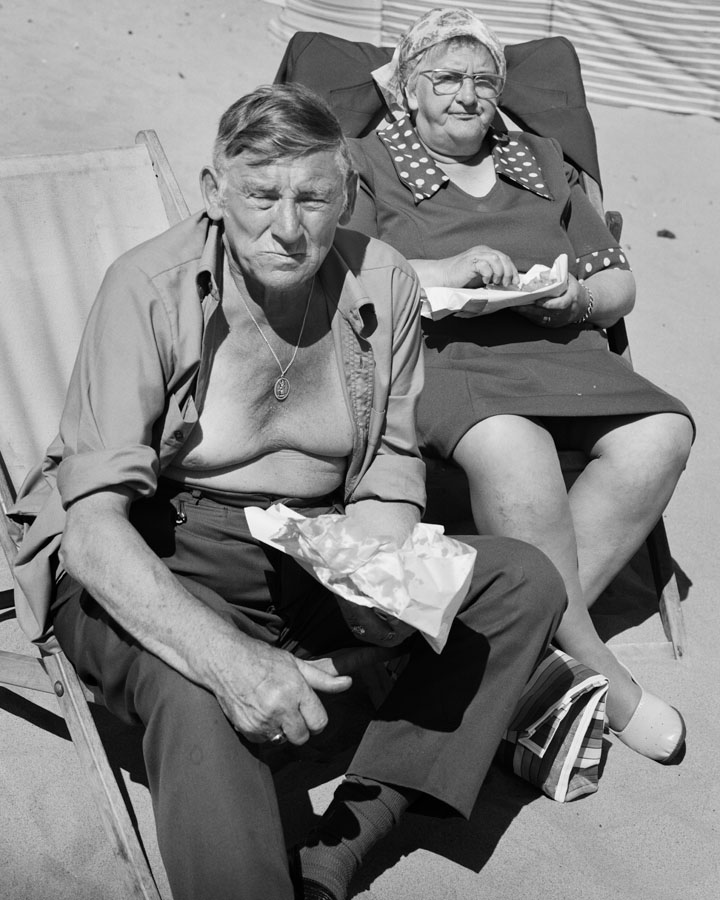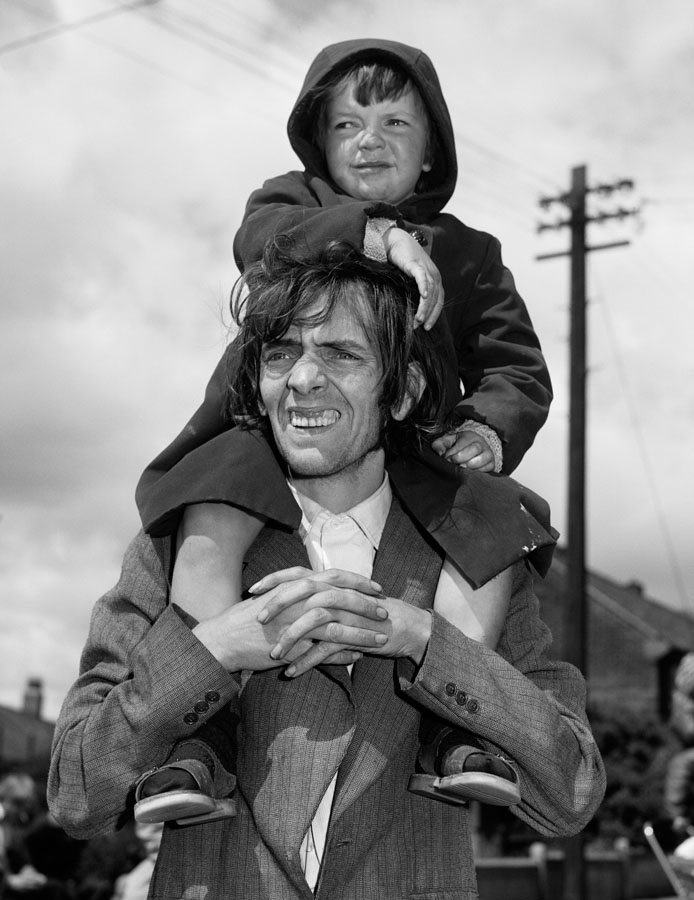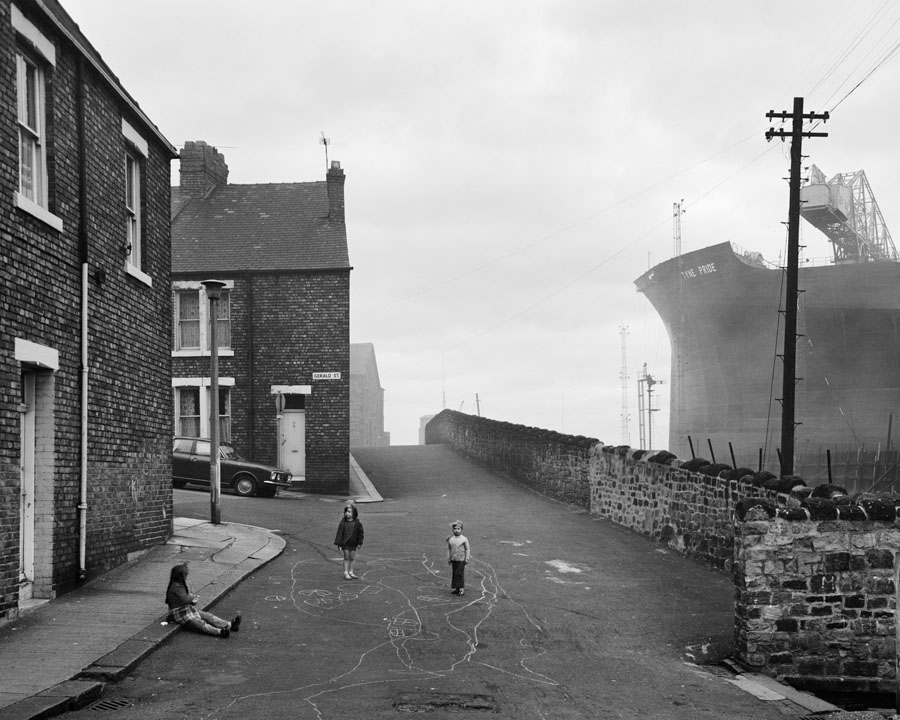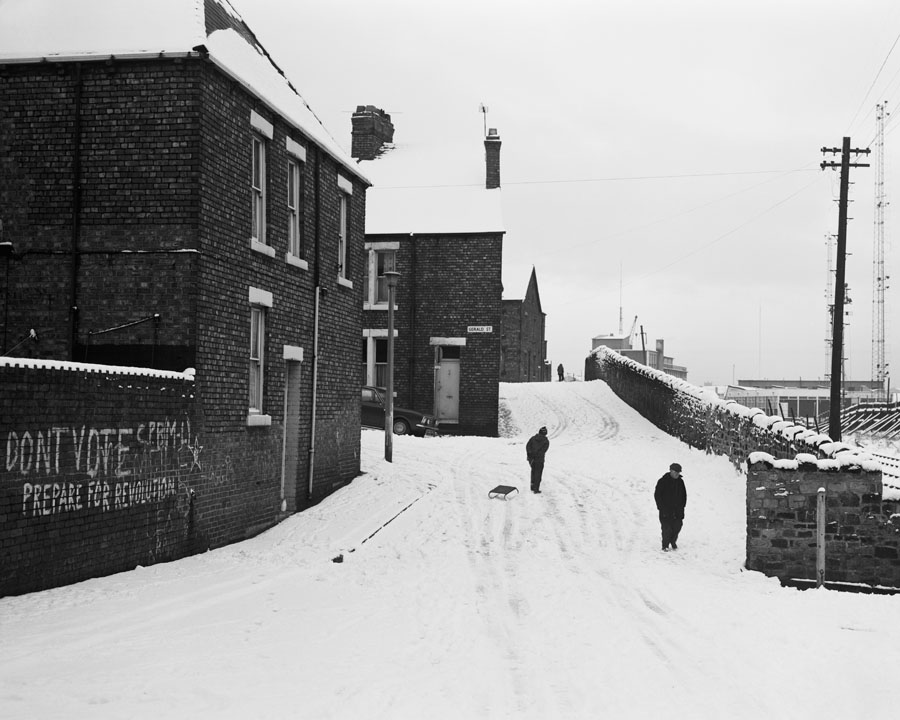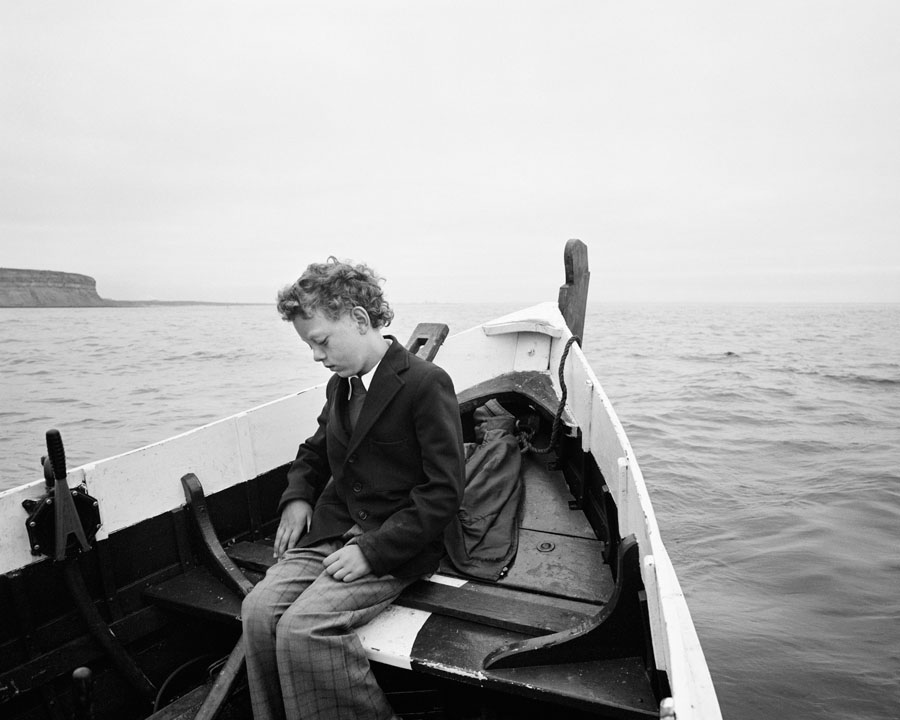Alessandra Ilaria Scarcia
Watanabe was lying in a hospital bed, on his way out. I had been his dedicated nurse for quite a while. I had grown fond of my patient and he had come to trust me. I had learned to catch the slightest change from one moment to the next, and I could now see the end in sight.
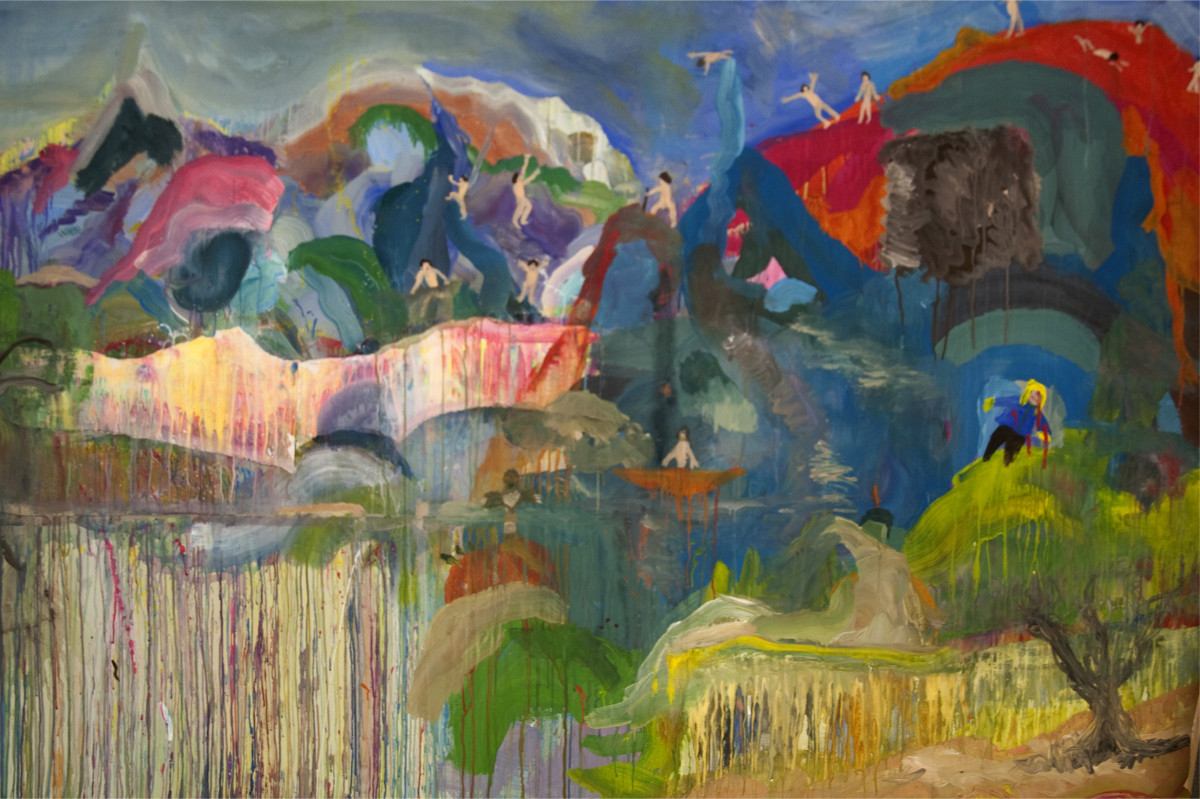
He summoned me one particular morning. He told me that he had wanted to write a libretto to put to music and he regretted that there would be no such accomplishment. It was then that I offered to help him with this project. Unlike him, I had no musical ear, but I could write a story under his dictation, however sketchy. And so we agreed to make the most of his waking hours by applying ourselves to this purpose.
The story takes place in Japan, somewhere along one of the many post-towns on the Tokkaido road. The 18th century is drawing to a close. The Tokugawa rule is still in full swing, but the floating world of the Edo period is maybe losing a little of its early floss and finesse. The action is confined to a portion of a mansion owned by a low-rank daimyo, who shared Watanabe’s name and fate; he was also sick and dying. His father’s poor management of the family rice paddies had bequeathed him barely an annual output of a few thousand koku. Yet his impoverished estate turned out to be his fortune. No threat to the Shogun, he was spared the routine of sankin-kotai. Instead, he had proved diligent as a gate-keeper along the stretch of the trade route he inhabited. Thus, he had been able to reside year round with his wife and develop a strong affection. To be fair, his family had granted him almost a love marriage instead of the typical arrangement. He had not chosen the most conventional of creatures but had respected the obligation to pick not below his station. Mores and customs were, therefore, sufficiently intact.
The lark was singing sweetly, very sweetly. Today, however, instead of comforting the master of the house, it angered him to the hilt. It reminded him of another bird, the hototo-gisu that had paid him a visit out of turn. At first, he had been grateful for its company and had marvelled at its wanderings out of season, long after the time of oranges in bloom. As if it had been waiting for him as long as possible, the bird was bidding him good bye, in case the master would not be there next time around at the right time of year. Come to think of it, he simmered, it must have been one of the almanac maker’s tricks when he had called unannounced that very evening. He had remarked on the little bird and sold its appearance to him as a good omen, clearly ready-made, to feed him lies about his prospects and the promise of future readings. To this the master had raged that more soliciting was unwelcome. Mercifully the visitor took his queue and left. Now, Watanabe had been sitting on the very spot on the veranda, basking once more in the evening breeze. The days went by. The only difference was the increased bitterness of his medication. He would sip and stir and have yet another sip. Still, he’d taste nothing but green apricots – the raw and root of all things nasty. It was getting chilly and he had become dependent on Ume to lift him up and carry him back inside. It had taken some time to get accustomed to the presence of this peasant woman, now second only to his shadow. He saw in her what his wife did from the start. The lady of the house was very much attached to her attendant and trusted her wholeheartedly and leaned on her resilience before tough and competing demands. Indeed, you could count on this stocky country girl to be there for you, uncomplicated, immediate and muscular. But his limp was badly deteriorating, his gait bent in two, his bamboo cane no longer sufficient. Soon he will have to renounce leaving his bedside altogether. A group of men would find it difficult to carry him, never mind hardworking Ume, no matter how strong and tried. He would want the room rearranged so he could see, reclining, the plum tree peering over the veranda, framing the pond below, once the sliding doors were open. He would want the lantern moved to hang on the other side of the doorway, where he could expect the usual score of attracted fireflies at dusk. He could do with a lantern now, in fact: it was getting dark. Something must be keeping Ume. Maybe Tamako was detaining her across the pond in her haiku pavilion, thus named after the poetry she habitually engaged in. “Tamako! Tamako!” he faintly tried to call.
As it turned out, the loyal attendant was entertaining the lady of the house, shaken by distressing expectations. Ume, hell-bent on raising the spirits of the widow-to-be, had made the most of a casual encounter at the market. Now she was back with a guest and a suggestion. She was proud of her success when in the end her mistress had instructed her to put the man up temporarily in the kitchen quarters. “I’ll take care of the rest tomorrow,” her lady concluded. “Now do make haste and see to the master for the night.” Indeed, ripe with anticipatory grief, Tamako found herself taking refuge more and more often in the haiku pavilion the master had built for her as a token of his maturing love, once he discovered her to be an accomplished poet and calligraphist, upon her arrival to her new home. Unschooled in these arts, she had cultivated them as a true vocation, following the instincts of an uninhibited amateur. Here, on a low cherry wood table she stored her pots in which she’d rub her ink stick till it bled black, barely needing extra water drops. Here she’d experiment with verses with a firm and graceful brushstroke applied to the soft side of the mulberry bush paper, the rough side flat on the hemp covering the board’s surface. Positioned as she liked to be, on one hand she would face the entrance overlooking the pond in front of her, and, on her left, the latticed doorway to the dry garden of sand and rocks that coasted the pond till it gave way to grass and moss all the way to the house. At one time she had surrounded herself with cushions bearing patterns of pheasants and beaded necklaces, but she had returned most of them to the master who in his illness most needed them for comfort.
One of the changes they had to make as the master’s health deteriorated was to move him upstairs to a more sheltered room where he would have access to the winding veranda and could watch the stars on cloudless nights. From where he’d sit, kitty-corner, he could enjoy the pagoda-roof of the haiku pavilion, topped by a shrine-like golden dome he had gone to great lengths to have varnished. Tamako, on her part, could see the eaves of the main body of the house, and its decorative figurines, as she wrote the days away on the other side of the pond. The two had discovered they could wave to each other from their seats and still keep each other company from afar. This had cheered Watanabe seeking soothing compensation for the acceptance of his decline. He could no longer receive his guests himself on the main doorstep and usher them into the ground-floor’s tatami hall, where, master of many a tea ceremony, he would boast his knowledge, endearingly staged, recognizing the various harvests of all the different tea leaves, just from one gulp. And in between the guesswork, the party would wisecrack, admiring on the tokonoma the wide hump on the trunk of the precious bonsai as it recalled the rear of a plump and sultry woman.
Much had changed. Tamako had soaked with tears the sleeves of all her robes. Even this last one clean kimono she had on—green with yellow lining—had not been blessed with a dry spell. Yes, she reminisced: he had been the right one for her. She first realized this one afternoon when, not keen on palanquins, they had taken their first official stroll in town, over a decade ago. Caught in the rain, they lovingly shared an indigo umbrella. Consequently, she had reaped dirty looks from the townspeople who watched them. A wife, dutifully submissive, should always lag behind her man, especially if one so much her senior. But the master appeared pleased that day. Perhaps he had not noticed the passersby. He remarked, instead, how well her hooded robe suited her peach complexion and how pretty the paulownia pattern. Soon after she overheard that she had earned the nickname of fox-face, referring to her seductive looks and the enchanting spell that had bewitched her besotted spouse. She doubted there was anything fox-like about her ways. But it was ages since she had last scrutinized herself in the mirror. She had been far too overwhelmed with sorrow to pay attention to gossip and to her appearance. At present Tamako regretted not having shared her feelings openly with her husband when he was in good health. But it was time to return to the house and try to rest. It was too late to bid goodnight to her pets: the carps and turtles in the pond. It was for the better. The sight of them tonight would make her heart burst. A walk would do her good. She had dismissed Ume from her chores and taken it upon herself to tour the residence and see that all was in order and that the fence shielding their home would be tightly shut, as if that alone could ward away bad dreams.
As Ume was picking her choice of water chestnuts and persimmons from the fruit vendor at the market and placing them in her basket, an oblong wicker trunk against the far end of the vendor’s stall caught her attention. She had peered and noticed a slovenly sort of man, lame on his geta, clearly from out of town, spreading out his merchandise on makeshift benches: a bizarre object she had never seen before, some outlandish head-gear and some beautiful fans. As she keenly admired the fans at a closer look, he embraced his shamisen, positioned by the trunk she had noticed, and embarked on a melancholic sort of tune, singing to it thoughtfully.
Recollections long put aside rushed to her nostalgically. Her old collection of pebbles and sea-shells which she had left behind in a previous life came to mind. The offspring of a tinker and a fisherman’s daughter, Ume had spent her childhood in the shadow of her parents, roaming the villages on the shores of the Inland Sea. The absence of siblings had not spared her financial constraints. Her parents’ hardship had finally led her to make her own way, seeking employment wherever she could as a domestic. She had served courtesans of all sorts on the countryside’s beaten tracks. Her plain looks had sheltered her from visibility and a life perpetually on display. She ladled for these courtesans the fish soup she concocted best: octopus and squid. And her broom had become her fastest friend as she tended to them without respite. Then the opportunity to make a move had arisen when, reminiscent of her parents’ life-style, she had attached herself to a peddler of sewing kits and threads who regularly visited the inn where she was working. It was a match without illusions and for a long stretch she had been grateful to him for removing her from daily toil. Later, this new life had taken them to the master’s house, on the way to Edo, and upon Tamako’s request, she was taken in as her servant and companion.
Dazed, she had not noticed the music had stopped till the musician spoke to her. So she asked him if he knew lighthearted melodies as well. He promptly selected a tune of good cheer. He explained that the first piece sang to the stories depicted on the fans in which she had taken an interest. He could play many more. It was then that she had her thought: yes, he could be useful to her mistress. Indeed he was quite a sight, Ume considered, as she examined him in his threadbare haori and his mud-caked, worn-out wooden clogs with one of the straps thoroughly in need of mending. But she was reassured by a self-conscious way about him. She trusted her instincts: he was the mild, kind and serviceable sort. She had nothing much to lose. They would visit the draper in the morning, buy some good fabric and she would tailor him a suitable outfit for his stay at her master’s house. She had a job for him, she said hastily, and she would be back for him tomorrow after sunset. She picked up her basket and gave him one last look. He had pronounced cheekbones, a goatee and an earnest gaze. He returned her look though not too intently, for people had started to gather around them. But the understanding was there. They knew they both had a past.
The following morning was crisp and encouraged an early start. Tamako entered the master’s bedroom and took her place by the medicine tray. She knew the exact proportions of musk and cinnamon and when to alternate liquorice, ginseng and myrrh. Watanabe stirred and looked at his wife and her low neckline, her back to him as she administered his daily dose. Her nape had always especially appealed to him. He only had to take a look at it to feel a tidal wave of tenderness towards her, as if it summed up and pinpointed her utmost inner vulnerability. Her nape was like a pearl that gave away her secrets. If others could see what a fragile little girl she was they would not attribute to her any fox-like cunning. Just a glimpse of her very white neck made it so obvious to him. The ivory hairpin that he had given her to tie up her hair absorbed the scent of narcissus whenever she used it as aromatic ointment in a steaming bath. Then she would carry the fragrance with her long after, like a veil on a wound. He would never have guessed that such a tiny gift would disclose her nape in such a way as to reveal so much of her to him and so much about compassion. Who would protect her after his departure? To think that today was antipodean: she had become his keeper… Tamako turned around, realizing he was awake. They both smiled and she told him they would have a guest. He had become a little deaf with time and she now often had to repeat herself. Impatient at first, she had gradually put herself away and come to find an erotic touch in his saucer-eyed stare hanging on to her lips. She had adapted the habit of articulating her words, as when she had first learned to read. “Yes, a guest,” she smiled again handing him his potion. “A minstrel,” she added, “Saburo. You’ll see.”
Saburo had diligently followed Ume’s directions to the villa and was on time. Ume had kept her part of the bargain and waited for him at the gate in a most cautious fashion. Saburo was thankful to be welcome to stay and rest his feet after days of endless marching. Once shown to his pallet he did not toss and turn as usual. Instead, he was able to undress himself of the fatigue that had seeped so deeply through his skin and enveloped him like a gown. He slept soundly. The following morning, lady and attendant had the visitor properly scrubbed, re-clothed and suitably instructed to be introduced to the master with his story.
He had arrived in town on foot but had occasionally shared an ox with ad hoc travelling companions to help carry whatever luggage the crew possessed. He had thus taken to an itinerant life of alms in exchange for music and entertainment on the road. But such had not always been his fate. He had grown up on the stage in Osaka and had become a kabuki dance musician, learning the skills of the trade from his father. A born jack-of-all-arts, with time, he found himself to be quick and resourceful. Although unschooled, he developed a taste and ability for design and handicrafts, both keenly put to use by the stage manager, who had inherited him from his predecessor and gladly secured him further employment. Saburo contributed to the choreography of the plays with imaginative props and puppets. He drew landscapes for colourful prints to be mounted on rigid screens as backdrop scenery and prepared delicate designs to be pressed on foldable fans that played such an important part in the pirouettes on stage. He illustrated the intrigues of courtesans in unlicensed pleasure quarters, the toil of outcasts and the bitter-sweet in the parochial details of the daily life of commoners, each captured according to a plot. However, an unfortunate turn of events led Saburo to leave Osaka. This twist was due to the tragedy that befell the very stage manager who had become his protector. When the latter lost his wife in child labour, together with the baby, it was rumoured that he gradually lost his mind as the result of a too intense and unrelenting heartache. He could not imagine the man’s grief, but he deeply regretted having gifted him with a frock for the child, complete with all sizes of baby towels and bath accessories, during his visit to his boss’s place just before the birth date. Indeed, that day the poor man had tenderly shown him the maternity obi he had stored for his expecting spouse, placed gracefully over the cradle. Later, the unhappy widower started to be frequently absent from the theatre, till, inconsolable, he finally went missing and failed to send any news. Some claimed he had taken to wandering the outskirts of town as a beggar and others that he had religiously withdrawn to some far off mountain retreat. Doubtful of such gossip, but saddened by this loss of his own, Saburo had set out for Edo, wary of finding a patron equally fair but confident of joining the stage in the capital and eager to adapt to a higher caste audience and a new repertoire of epic tales populated by warriors and shaped by glorious deeds or historical events.
Saburo was thus presenting the outline of his story soon to be recounted to the master at the lady’s request. As he carried on, he lay out to air, with Ume’s help, his belongings from his wicker trunk, releasing a subtle smell of dampness. There were his flexible fans with prominent ribs; some had stood the marks of time and the beatings of the journey; others were creased and frayed at the edges but made elegantly imperfect by frequent usage and many a quick sway. Then out came his paint set with samples of dye, rice-starch paste and powdered pigments. There was the outlandish head-gear that had caught Ume’s attention at the market and the mysterious long object she had never seen before. As it turned out, both were of Dutch origin: a helmsman’s hat and a telescope sold to Saburo by a merchant from Nagasaki. The master would be certainly interested in learning all about the latter, Tamako intervened. And so she led him to Watanabe’s chamber and introduced him, with a telescope in one hand and a shamisen in the other. “Saburo, to entertain you,” he bowed. Saburo’s practised eye, as the shoji opened on the reclining master, saw a painted world that he was willing to bring to life. He was sharp in catching the gist of the master’s predicament. He seemed someone who had adapted to the ways of a professional onlooker, past bargaining with the lines of the horizon to hold it and delay the sinking of a ship round the bend in the deepest seas. Even the sun shimmering outside looked sick and the slant of the rays tinged the room a mauve in limbo fever. He caught Tamako’s anxious glance; she looked dreadfully small. He knew why he was there. Without temporizing, he put down his telescope. Spanning the chords of his long-necked shamisen, he plunged vertically into a tune, in a quest for a note unknown, amidst the many and the familiar.
Uncle had not exactly been sent for, but he had been duly and unavoidably informed of the sorry state of affairs by a hired messenger. He had obviously taken it upon himself, as a rigorous man of conventions and as Watanabe’s Uncle to check for himself and see that all was fit under the circumstances. As the youngest offspring and last survivor, Uncle had benefitted from a unique set of laws, in that corner of the country, on partible inheritance and ultimogeniture. Uncle certainly had been rewarded for his caregiving services to Watanabe’s grandparents. Compared to his older brother, Watanabe’s father, he had proved more skillful, thrifty and mean. Now there he was, crossing the fence that wrapped the mansion, and he came accompanied. As he walked up the footpath to the house, something odd caught Uncle’s eye. “Why is this lantern burning wastefully in the middle of the day? How about cutting costs?” he cried, clearly missing the point. Ume greeted him and said the master had wanted it that way since the last Obon festivity and they had stocked up on incense burners too. She did not mention what her lady had explained; confronting the brutality of his impending end, the master had wanted to establish, soon, an ongoing connection with his ancestors in order not to be caught off guard should his demise be quicker than expected. Uncle would not approve in any case. Nor was it her place to volunteer further details. She was just the housemaid and Uncle was not her master. Silly girl, Uncle thought. There must be more to it, or maybe fox-face was up to something. Then right behind Uncle, as they approached her, Ume finally recognized the Doctor from his lacquered inro case hanging from his sash with carved ivory netsukes for toggles. During his previous consultations she had marvelled at how much that little medicine box could store: herbs, dried roots, leaves and tiny bottles of various potions. He was known to sell abortion drugs as well, and she suspected he was not short of clientele. He looked absorbed in his own thoughts today. Indeed, there was a strange blue in the burning flame that made the Doctor ominously uncomfortable, like the hue of his patient’s skin last time they met. On that occasion he had advised Tamako, as an experienced gardener of sacred lakes, to cut all the lotus leaves in their pond so that new shoots might rise from the old, to the benefit of his cure. Never mind if the calendar date was inexact for the procedure, he had retorted when Tamako objected on the basis of known religious practices. “Just in case the gods will grant the master some special luck—you never know,” he carried on. Ume, of course, had loyally helped with her share in this endeavour. Tamako had also promptly appeared at the rattling of the fence. Displeased at the sight of Uncle, she beckoned to the Doctor and together, amidst the chatter of the insects, they made their way to the pond to have a look at the prescribed floral arrangements. Making the most of this moment to themselves, the Doctor asked if the barley diet he recommended had helped the patient any. It was the new cure in vogue as a substitute for rice to combat illnesses of this kind. But alas, Tamako nodded furtively. She had done as she was told but the master kept withering away: he would soon see the challenge for himself. The two took their time in turning back. Then they climbed the staircase and as they were about to enter the master’s chamber, they eavesdropped.
“It is not yet New Year’s Eve and I have not sent for anyone to settle my accounts,” stressed Watanabe to his Uncle. It was clear that the latter did not want to be saddled with his nephew’s debts once he had passed away. Thus he planned to anticipate the New Year’s practice of paying creditors for their services. Reading his mind, the sick man added, “You shall now pay him yourself since it is you who called for him.” The Doctor kept Tamako from drawing the shoji open. He said he would come back to check on his patient another time. He could tell she was truly torn by this extra unnecessary strife. Uncle’s worries were untimely. So before she knew it, the good man had taken leave. Nevertheless, as a proper host Watanabe had asked Ume to bring in food for Uncle: flattened rice cakes and rice wine, clams and dumplings, bean paste and soy sauce. Ume had dutifully taken out the best porcelain for the meal. Like his spouse, Watanabe was not fond of Uncle. Every time Uncle had come up in conversation, the master had smirked commenting on his mannerisms in handling his pipe and smoke set. He had unfailingly labelled his put-on well-to-do airs and graces as sneaky as a lizard’s. Indeed, the lizard was now taking advantage of the master’s ill health. No longer as vibrant as he used to be, the master would clearly find it strenuous to respond. As Tamako knelt down, listening further to the conversation in the other room, more angry words from Uncle made her pale. Nailed with acute embarrassment, as if stabbed by the sharpest knife, she froze, motionless. Uncle carried on, uncalled for and cruel. That their age difference had been frowned upon was nothing new. Yet he had never been as void of clemency as today. His line of argument, as if rejoicing at his nephew’s financial straits, was that he should have taken in more servants and proper care. Spouse or nurse, his wife was simply unfit. “Why don’t you put a stop to her vulgarity? … Look at her as she strides flashing the hem of her scarlet undergarment, indecent and unladylike!… Why does she wear long sleeves as if she were still unwed?… Why can she not pluck her eyebrows like any lady in her position? And look at her uncouth, dishevelled hair, like an old hag.… Her mother should have taught her long ago to blacken her teeth….” Enough. Tamako got up, slowly; very slowly, and walked.
Little did Uncle know that he was going to get the performance of his life, rehearsed especially for him. Tamako, in fact, had summoned Ume and Saburo to stage the most lewd, coarse and unrefined pièce that could be concocted in half an hour. Ume and Tamako slapped on thick heavy make-up in a rush and put on the flashiest garments Tamako could spare and hurriedly did a sort of Shimada hairstyle, which actually, oddly suited them, so as to pass as siblings. Saburo took hold of an improvised drum and, together with his shamisen, repeated over and over an extract from his repertoire vaguely familiar from Ume’s former life in the backstreets. Tamako would mimic her servant’s dance and gestures, overcoming whatever clumsy shyness with her fury. She knew where the master stored his swords and, having picked the bluntest and the lightest, she brandished the weapon in the air with a tearing noise, contributing to the music. Since the venue for this show was the chamber adjacent to the master’s, Uncle was startled and asked what was going on. The master had his chance to take him for a ride. Pretending not to hear a thing, he asked him if he was going crazy: Did he hear voices? Was he the sick one by any chance? Watanabe understood Tamako’s purpose. She wanted Uncle out of there and what would induce him to leave their house better than the shock that his own nephew was breaking every possible rule that banned all music and entertainment upon the impending demise of someone of his rank? There, Uncle finally slung open the sliding doors and caught the seen in full. “What’s this madness all about?” he cried. They all seemed to have gone mad, enjoying the feeling of being carried away in a dizzy trance. Watanabe broke into his old hearty laugh. Tamako had not heard it in a very long time. His laughter had indeed changed in the last while. It was still subsisting but subdued. At the sound of his old self, she felt relieved: she knew she had done something right. “Why, what’s the problem? I have commissioned this artist from out of town to paint my death-portrait. Aren’t you proud? Won’t it provide you with plenty to boast about?” Watanabe sneered at Uncle. His old impetuous nature resurfaced with the spark of a short fuse. “I even thought I’d have you in it!” Uncle froze. His right hand as if impaled, clung to the shoji, while the trio played on. Tamako, in between acts, with the sword dangerously pointed at him, showed him to the stairs, inviting him to lead the way and descend. He lost his composure and rushed out having hardly properly slipped on his sandals. He crashed into the flower-pot at the entrance. The vase cracked but his foot was also sore. Then Tamako dropped her sword and the three of them ran after him into the garden, still making noise mockingly till he passed the outer gate. And so Tamako saw him off, as he cut across the fields, ripping through the swaying high grass and spikes of wheat to where his men and palanquin awaited him. “You’ll be an old man when I see you next,” she thought to herself, relishing the revenge.
Tamako summoned Ume and Saburo to the master’s room when the dust settled. “A wonderful idea,” she said, referring to the portrait. Ironically, it provided an ideal official reason for the presence of an artist of good standing in a household of their repute. Saburo would work in the master’s antechamber. There was plenty of room on the floor to lay down a long silk scroll for the painting. The shoji could be opened at any time for the artist to examine the master and the smell of paint would be contained at a distance from Watanabe’s person. The portrait would be executed according to the most rigorous rules. Watanabe would be looking to the right, thus the portrait would be placed pointing to the south. The master was to don his widest white neckband and his most formal tunic glamorously bearing the family crest on his chest. He would sit tall, with his bamboo cane; calm and serene, proud and strong: in a class of his own. Such were Tamako’s instructions. She turned to Saburo to make sure that all was clear. He assented. Ume would get him all he required for the undertaking. She then looked at the master for his final approval, expecting no resistance. “Tamako,” said the master, “I will be the only one allowed to see the work in progress.” He looked at her severely, “Not you, nor anyone else can do so in my place.” Slightly taken aback by the austere undertone, she bowed and left the room wondering to what extent she had been indelicate. Saburo was about to take his leave as well, but a stern look from the master beckoned both him and Ume to stay behind. The master, short and brisk, went straight to the point. He made it clear to them both that he was not dead yet. He had no intention of being slowly and gradually effaced with each and every brushstroke. He had other plans for them both and he trusted they understood that they owed him as the master of the house loyalty in exchange for employment and hospitality. His tone struck Ume as unusually imperative: he’d tolerate no retort. He had taken an interest in Saburo’s telescope, the master carried on. He wanted it placed on the veranda outside his room. It was optimally located as the moon and the stars were regularly in full view. While they could all take pleasure in admiring the sky at night, the telescope would stay there during the day, fixed to the railing. Peeping through the plush green boughs of the trees, Saburo would instead examine Watanabe’s spouse as she wrote poetry in the haiku pavilion, perfectly visible from the veranda. The artist was to impress the image of her in his mind and make it come alive in his painting. She and not the master would be the subject of the portrait. This was his final wish, to see his wife portrayed, and the end product would be his gift to Ume after his death for her services to his wife. Ume would see that Tamako would pose unknowingly by spending the day writing verses to suit the scenes on Saburo’s fans. In the evening Saburo would set them to music and the two women would dance for him to the sound of Saburo’s shamisen. They had already proved themselves at that, he smiled. All would be fine. He spelled out that he was confident they both would accomplish their tasks beautifully; this project was to keep his wife busy, sane and entertained. He loved her more than life itself. Yes, they understood; yes they would set to work immediately. Exhausted, Watanabe rearranged his wooden pillow, adjusted the cushions with Ume’s help, and turned his back on them both. They were dismissed.
Saburo, once alone with this thoughts, gave a sigh of relief. He was good-natured and always eager to please. Yet he was glad he had been spared the challenge of painting the master. He was only an amateur painter, though with some experience in the use of colours. For the most part, in the past, his drawings had been destined for woodblock prints commissioned by the theatre. Besides, he had been taught not to stare at his betters. It would have been unspeakably uncomfortable to portray such a man and for posterity. He was intrigued by the new task, instead: a special death-portrait about life and loss. He loved his telescope and with this instrument of precision, from a world far off and already in another era, he believed he could work wonders. Spy into this arcane woman’s soul peeling off the patina; catch it in the web of the painting for the master to get to know her depths as never before and see through her, like looking down at the bottom of the clearest well. He would transcribe her secrets and their afterglow would shine for the dying man in an unknown splendour. He hoped it would dazzle him as a revelation, intense as sunlight splashing on the globe and more of it as new mornings’ flow. He could therefore die in peace knowing he had truly met her. And once aware of her painted disclosure to him, open and most generous in this paper kiss, she on her part would not be haunted as often loved ones are awaiting the return of the dead to encounter them one last time for a goodbye that to grant definite severance and release must be sealed with one mighty dream.
As his work progressed, Saburo became perilously fond of the subject of the portrait as he traced the woman’s sinuous figure wrapped in sorrow. He learned to compress years in tiny moments: in the wrinkles of her forehead, spinning in a whirlpool of torment; in the tear drops in the corner of her eyes that came alive in a wailing whisper as her eye-lids winked and the star in her would twinkle. Each of her worries, floating on the scroll with a reason of its own, was made real by the prism of his long lens, piercing through the haze of the afternoon and leaning over the waves of chosen colours to create contrasts of light and shade. Yet her slanted gaze, as she looked up and sideways, taking a break from versifying, brush in hand, would be like a deep current in the sea. It carried her as far as she would have to reach to overcome the painful course of events upon her. But the richness of her soul and the curves in her tense ways could not be conveyed by too much perspective flowing from the reality-bound telescope in his hands. So Saburo came to trust his own dexterity in making cohabitation possible, on the page, of the wet moisture of her face, the strident rustling of her brocaded silk robe against the satin sash, a half-naked calf inadvertently escaping an imposed composure beneath the low cherry wood table where she would kneel to write, a hair lock let loose from the tight hold of the ivory hairpin she would never part from. He picked a translucent pearl hue for the nails on her ink brush; a slight rose-pink of safflower blossom for her calf; saffron crocus crimson and iron-red were her satin sash and autumn brown the tortoise shell pattern on her gown; jet-black her slanted pupils to pierce the master’s heart with the arrow of devotion. She would be placed, like in a cloud, in white lead pigment smudged with a chalky opaque, and copper treated with hot vinegar for a border of sweet grey-green, made to glisten with an egg-yolk blend. This shielding cloud of foam would represent her pavilion, shaped like a vessel sailing in a dark Prussian-blue ocean, with glittering silver powder to signal the forthcoming storm in the night destined to widow her. Now and again, Saburo would release the telescope and return to his work chamber. He would lean on the support he had built for the painting, placed on a velvet fabric right on the floor, hosting the silk scroll that had first been duly treated with alum and glue. He would hover over what he hoped to be his masterpiece, as she herself would over her own verses, caged in her pavilion, engaging with his fans to provide thematic guidance for the evening show. Confident that their tasks shared the same goal, he gathered the strength to put in art-form what he had seen her accomplish through the lens.
Watanabe was getting visibly weaker. He had been upset when his favourite cup had tipped over and chipped when it had slipped from his weary fingers. Oddly, that was the day his own voice started to break. Now he sometimes stammered and the words came out in bursts. Tamako’s devastation grew, increasingly attached to him as he to his cup, as his voice lost soundness, day after day, ever more finite, fleeting and fragile. He still wanted to use that cup and would do so till the end. No matter how many dents and cracks, like him, his cup had undergone. She reacted to her sorrow by applying herself with daily discipline to the job assigned to her which she had accepted without question. Keeping everything together for the master’s sake was her objective. Games, music, poetry, merrymaking and all things vibrant were to be her most magic gift to him for the transient fragments he had still to live. As on the previous days, she set out to the pavilion as if her own life depended on it. That morning she had looked for the headscarf she sometimes wore to keep her from the dust. Maybe she had forgotten it in the pavilion, when, absorbed in yet another verse budding inside her, she might have tussled it aside on the floor. In her neglectful ways of late, she had dropped the habit of wearing socks, in spite of the cold. She used to like the soft sensation of the moss as she trod the grassy path to the pavilion. But that seemed a long time ago, when she was still capable of proper sleep and feeling. Today, however, as she walked, she felt chilled by the dew on her bare feet. While she noted to have firewood gathered given the change of season, she was startled by a sudden flicker. The little golden dome on the pavilion’s rooftop sparkled. She turned around and amidst the branches she caught the flash of sun-rays reflecting on a mirror—or were they lens hiding in the green? She paused, perfectly still and looked up again. The glare had gone. But she had understood. It was the telescope and she was being watched. Disconcerted, she resolved to resume her day.
It would not take her long to get to the bottom of this affair. The following day was a very different one: heavy with thunder and dark rain. She had decided to take a break from her writing till the storm abated. Then, stepping out on the veranda to retrieve her parasol, she saw a camouflaging purple silhouette. It was gliding through the garden, almost floating, leaving no traces. Umbrella in hand, she speedily went out to follow the shadow. She realized it was Saburo approaching the pavilion. From a distance she could not quite tell what he was after, so she crept behind him without making noise. He was loosening the hinges of the sliding doors to her pavilion in order to obstruct their proper closure in the forthcoming colder weather. She understood: there would be a crack and he would still be able to see her through the gap. She let him work; and when he was done, he turned around. There she was, cradled under her umbrella, spread out like a peacock’s tail. Startled and confused, he didn’t know how to cover his surprise. He despaired that all was lost now that she knew. She looked at him inquisitively and waited. At first she appeared ruthless and made of ice: above fear or the need for favours, beyond resentment or remorse. “I did not expect my lady here today,” he managed to articulate. “No?” she grimaced, “Yet there are no chance encounters in the rain.” She mentally repeated this to herself, looking away. There was no choice but to accept whatever the master’s wishes were. Nor did she have the energy to oppose him or to pick on Saburo for his role. It would be easier to join forces, ride out the sadness and see the master through the ultimate test in the way that worked best for the ill-fated. There was no need for further explanations, her look implied, as she turned to him once more. “I do have one request,” the lady added. “You’ll make haste and finish the portrait to be ready for the master at any time. But you will not tell him when you are done. You’ll keep him from seeing the work in progress and carry on refining every detail. To know there is more to do will give him vigour. We’ll do our best to prolong this till the spring, his favourite season. Then, and only then, he will be truly ready to depart.” Saburo, once again, was relieved. Once more he had been spared: she was complicit with the sweetest deceit. “Keep dry and out of the draft,” he said referring to their deal. Tamako sighed. The rain had turned to snow. It was time to head back, each on their own.
When Tamako was not by his bedside, Watanabe would take comfort in the objects she had left behind: a scented comb, strings to tie her hair, a pair of tabi soiled with wet earth or dry sand from the garden, depending on the weather, and that one straw sandal with braided straps that had been there for days. It was still there. Why was it in the room? Where was the other one? Did she not wear her zori anymore? He looked at the footwear fondly. It was tiny, like a child’s. Poor Tamako. As his health crumbled he had come to tolerate the thought that she might break. She was still young: she still had the power to cry. She was skilled in the art of silence. Yet her tears, so telling of her age, gave her away. She had a long way to go before she’d learn to overcome the blows of life, the disappointments in store and the absence of destiny to which the inglorious majority is fated. But the craft of her bones was fit; she had all the means to rise out of despair one day and feel the way to be as smooth as the palm of her hand, no matter to how slow a pace the potholes along the road had condemned her. She’d get there, eventually, bruised but not erased. Without him.
He was sleeping more and more lately, yet he looked forward to the evening show. The night before he woke up to the sound of music. He had been dreaming of a beautiful butterfly with Tamako’s body flexing in between the fluttering wings and she wore fancy silver hairpins resembling antennae. He opened his eyes sensing his dream crystallized in a mirage. Ume was also dancing like a butterfly on stage. As the two women flashed about their winged sleeves and airy gowns, pursued by long trailing hems, they strewed ribbons and tugged acrobatically at the ones caught over the screens that opened onto the stage. Or they would hide behind veils hung up to act as curtains, before clasping in their grip the fans that were the centrepiece of the play. Most delightful it was to hear his dear wife sing:
Mellow was the helmsman,
that picked me from the shore,
and quick the oars,
that washed me upon this moor.
I sought the town expecting showers of gold,
but laboured hard scraping the mould,
and gathering the dust,
I dry-cleaned the courtesans of lust,
and saw their clients to the door,
when they wanted more.
And now I sit and watch the geese,
and envy them their ease.
For they know when’s the time to stay,
and when’s the moment to make way.
Then for a split second his mind was clouded by a jealous thought when he caught the connection in the look exchanged between Saburo and his wife as she sang the verses that translated the sequences, scenes and landscapes on his fans. Had intimacy occurred between the pupil and the teacher? Was he to blame for having bound his art and her poetry, his tunes and her voice, the servant and the lady of the house? Was this the pull of life he had wished for her, to allow her to cut loose and save herself from drowning with him in this black hole of no return? Was this the price to pay for her to stay by his side and suppress the urge to walk away before the ultimate loss of hope? Had he been too good or not noble enough? Were the two young ones looking behind their shoulders, circumspect, or were they riveted ahead onto the future, when he dozed off or gave in to the pain that bit as tearing as a set of dragon’s teeth in his belly? Regardless of the score between them or how the players came to be thrown together in this drama, he knew she had not abandoned him. This was all that mattered.
That evening Watanabe struggled to keep alert throughout the performance. It might be the last one, Tamako thought, looking at his skinny arms, like weather beaten twigs, and his fraught, loose-fitting skin. Ume and Saburo habitually tidied the room after the play. Tamako ordered them to leave it this time and keep wake in the adjacent room where the portrait had grown and bloomed. Then she put her man to rest and lay down beside him by the lamp. But the master needed air and his wife got up and slid the shoji open. There was a full bright orange moon, looking half cruel, half pleading. It shone through the plum tree that stood tall, framing the veranda. The long shadows of the leaves suggested to the master an enveloping embrace, like hands with prominent veins swung by the wind to take him with the tide. He caught a glimpse of white on the tree and in a pale, frail whisper asked his wife if they were snow-flakes. When she answered that it was the first plum blossom of the season, he knew it was time to go with the earliest spring breeze. “Ume! Saburo!” Tamako yelled to them in the adjacent room. “Bring it here!” As she begged her husband to hold on, the two had rapidly obeyed. They dragged the painting out and raised it before the master as Tamako lifted him up supporting his back so he could see the portrait with dignity by the burning light. He took a long dense look and vanished into the jet-black depth of her eyes.
A dim streak of light was filtering through the door frame that sealed off the dead man’s chamber where Tamako had retreated. She had mentioned she would be talking to Saburo before dawn. In the penumbra of the adjacent room, Ume and Saburo, as if scrambling to find a foothold, sat down without a word to play a game of Go. They soothed their anxieties by concentrating on their moves, as if the placement of a lucky stone might dissolve the uncertainties ahead. A few hours later Tamako softly entered the room. She had changed into a dress of wisteria bark. Saburo faced her, flushed, as if he were about to be judged. The two knelt down uncomfortably, yet with grace; they stood up, exchanged places and knelt down again. Ume did not have to be asked to retire. Tense, she went out for air. She found herself in the garden watching on the paper window panes the silhouettes of her lady and the painter as they spoke. She sensed Saburo’s animation. Was he begging to offer her comfort? Or assistance in producing a real death portrait to display? Why leave now? Should he be back after the mourning period? Would she want him to return on the 49th day? Was he describing to his lady her own bleak future with her spouse’s next of kin? Or as a rejected outcast? They could not possibly be negotiating his reward; she would amply compensate him for his work… And Tamako? Was she past the utterance of words? Was she struggling to feel numb? Was she putting out her feelings like a lantern light? Was she silently telling him his job was done? To pack his things and leave before her husband’s family would come to claim the body? And take Ume away with him maybe? Or was she praising him as a true artist? Reassuring him that the maid would treasure his painting and the lady the gem that came with it for she had seen herself at last through the old man’s loving eyes?
Tamako slid open the shoji facing the veranda as Saburo stood up. A lengthy silence followed. She had locked herself in a splendid solitude, magic and categorical, while he squeezed despondently his old outlandish hat he had worn for that evening’s play. He bowed. “If it has to be so,” he whispered and stepped out into the fading night, as the mist rose.
Alessandra Ilaria Scarcia
In memory of Jack Goldsmith (May 10, 1949 –
January 3, 2014).Dedicated to all the care-givers who have what it takes.
